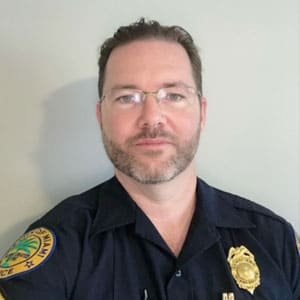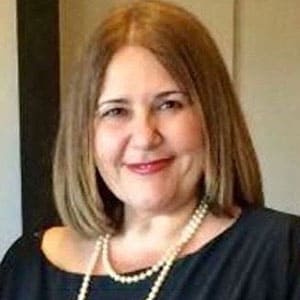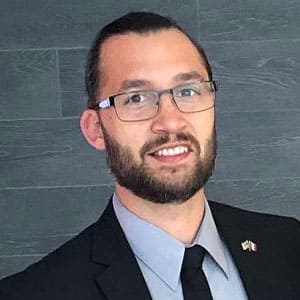February 11, 2021

NAMI Ask the Expert — Help, Not Handcuffs
Part 1: The Definition of Insanity Documentary & Panel Discussion
February 25, 2021, 4:00 – 6:00 p.m. ET
This first webinar of the series will feature a showing of the 2020 PBS documentary The Definition of Insanity, which tells the story of the Miami-Dade Criminal Mental Health Project (CMHP), a team of dedicated public servants working through the courts to redirect people living with mental illness from incarceration to recovery.
Following the showing, NAMI’s Chief Medical Officer Dr. Ken Duckworth will lead a guided discussion and Q&A with our panel of experts, many of whom are featured in the documentary. Panelists from a variety of specialties will share insights, information and resources on their community’s response to our nation’s mental health crisis.
This event’s panel will include:
From the 11th Judicial Circuit of Florida Criminal Mental Health Project Jail Diversion Program:
From the Matthew Harris Ornstein Memorial Foundation:
 Sergeant John R. Blackerby III, City of Miami Police Department
Sergeant John R. Blackerby III, City of Miami Police Department
Sergeant John Blackerby III has been with the City of Miami Police Department for 22 years. Within his capacity as a police officer, Sergeant Blackerby spent nine years as a K9 handler and four as a trainer. In 2013, he was promoted to Police Sergeant, supervising units in Patrol, the Overtown Problem Solving Team (PST) and Overtown’s first Community Redevelopment Agency (CRA) Patrol Unit. He is currently active as a Patrol Supervisor in the Upper East Side NET as a Crisis Intervention Team (CIT) and Field Training Sergeant (FTS). Sergeant Blackerby has been married for 18 years and has four children.
 Judith L. Harris, President, Matthew Harris Ornstein Memorial Foundation
Judith L. Harris, President, Matthew Harris Ornstein Memorial Foundation
Judy Harris recently retired from the full-time practice of law after more than 45 years in the public and private sectors, having spent much of her career at the global law firm of Reed Smith, specializing in litigation, antitrust and consumer protection and, later, communications and privacy law. In 2015, after the death of their 34-year-old son Matthew, she along with her husband Norman Ornstein and their surviving son Daniel established the Matthew Harris Ornstein Memorial Foundation. Matthew was a national champion high school debater who excelled at Princeton and was successful in Hollywood following his graduation, before the onset of an ultimately undiagnosed and untreated mental illness. During the painful 10-year journey that ensued and before his accidental death, Matthew and his loved ones encountered virtually every aspect of the country’s badly broken system of care for those with serious mental illnesses. Harris now works full time running the Foundation as its President and furthering its mission to eliminate stigma, minimize suffering and improve the lives of people living with serious mental illness.
 Habsi W. Kaba, Crisis Intervention Team Coordinator, Miami-Dade County
Habsi W. Kaba, Crisis Intervention Team Coordinator, Miami-Dade County
Habsi Kaba began her career in rehabilitation and recovery 25 years ago. Since 2003, Kaba has led the 11th Judicial Circuit Criminal Mental Health Project’s Crisis Intervention Team (CIT) Program in Miami-Dade County. In 2016, Miami-Dade County’s CIT Training Program was praised by former President Barack Obama as a model example of national reform. As a marriage and family therapist, her passion as an educator and public speaker inspired her work to create understanding and compassion through partnerships and collaboration within behavioral health, criminal justice and first responder communities. Kaba has trained more than 15,000 law enforcement/first responders, criminal justice stakeholders, educators, and medical and social service professionals. She has also served as a consultant for government agencies, including the Department of Homeland Security U.S. ICE Hostage Negotiation Team. Kaba is an internationally recognized expert in crisis response, behavioral health criminal justice initiatives, systems transformation, curriculum design, trauma, officer wellness, de-escalation, police mental health collaboration and liaison services. Her educational platform extends to communities through local and national radio and televised productions. In 2014, Kaba was named CIT International Coordinator of the Year and, in 2019, joined the CIT International Board of Directors.
 Judge Steve Leifman, Miami-Dade County Court
Judge Steve Leifman, Miami-Dade County Court
Judge Steve Leifman is an Associate Administrative Judge of the Miami-Dade County Court. He previously served as Special Advisor on Criminal Justice and Mental Health for the Supreme Court of Florida and currently chairs the Steering Committee on Problem Solving Courts. Judge Leifman is the co-chair of the American Bar Association Criminal Justice Mental Health Committee and co-chair of the Judges and Psychiatrists Leadership Initiative. He was appointed to serve on the Conference of Chief Justices and Conference of State Court Administrators National Judicial Task Force to Examine State Courts’ Response to Mental Illness and the Interdepartmental Serious Mental Illness Coordinating Committee (ISMICC) established by the 21st Century Cures Act. Judge Leifman has been featured in many national and local television programs, radio programs, and articles regarding mental health and the criminal justice system.
 Norman Ornstein, Vice President, Matthew Harris Ornstein Memorial Foundation
Norman Ornstein, Vice President, Matthew Harris Ornstein Memorial Foundation
Norman Ornstein is an emeritus scholar at the American Enterprise Institute. He is a contributing editor and writer for The Atlantic and has been an election eve analyst for CBS News and BBC News. He is also Chairman of the Board of the Campaign Legal Center. He was elected as a fellow of the American Academy of Arts and Sciences in 2004. His many books include The New York Times bestseller, It’s Even Worse Than It Looks with Tom Mann and One Nation After Trump: A Guide for the Perplexed, the Disillusioned, the Desperate and the Not-Yet-Deported (2017) with EJ Dionne and Tom Mann, which was immediately on the New York Times and Washington Post bestseller lists. Ornstein has a B.A. from the University of Minnesota and an M.A. and Ph.D. from the University of Michigan.
 Cindy A. Schwartz, Project Director, 11th Judicial Circuit of Florida Criminal Mental Health Project, Jail Diversion Programs
Cindy A. Schwartz, Project Director, 11th Judicial Circuit of Florida Criminal Mental Health Project, Jail Diversion Programs
Cindy Schwartz currently serves as the Project Director of the 11th Judicial Circuit of Florida Criminal Mental Health Project — Jail Diversion Programs. Her career goals have been focused on promoting system transformation, community integration and recovery for individuals who experience serious mental illnesses. Schwartz has a master’s degree in Rehabilitation Counseling from the State University of New York at Buffalo and a master’s degree in Business Administration from Nova Southeastern University. She is a certified Mental Health First Aid Instructor, an Advanced WRAP (Wellness Recovery Action Plan) facilitator, instructor of How Being Trauma Informed Improves Criminal Justice Responses, Certified Court Manager, consultant for the SAMHSA SSI/SSDI Outreach, Access, and Recovery (SOAR) Technical Assistance (SOAR TA) Center and consultant for the SAMHSA GAINS Center. Cindy is also actively involved in her community and serves on a variety of professional organizations, boards and committees.
 Justin Volpe, Certified Recovery Peer Support Specialist, 11th Judicial Circuit Criminal Mental Health Project Jail Diversion Programs
Justin Volpe, Certified Recovery Peer Support Specialist, 11th Judicial Circuit Criminal Mental Health Project Jail Diversion Programs
Justin Volpe is a Certified Recovery Peer Support Specialist who has worked with the 11th Judicial Circuit Criminal Mental Health Project, Jail Diversion Program since 2008. As a successful graduate of the program, Volpe has firsthand knowledge of the importance of timely, high-quality behavioral health treatment services in the community. After experiencing a series of psychiatric health care crises that lead to a period of unstable living conditions, disruption of family and social supports, and brief involvement in the justice system, Volpe became engaged in treatment and support services in the community. Today, he enjoys a full and productive life in recovery, serving as an inspiration and role model for others. Since 2011, he has also served as a national consultant and has travelled the country sharing his message of hope. Volpe has helped train more than 2,500 CIT officers in Miami-Dade County and assisted in getting more than 1,000 people out of jail. His experiences make him uniquely qualified to speak to the importance of ensuing people have access to care when and where they need it, as well as the unfortunate consequences that can result when they do not. Having overcome significant challenges, he is now married with two sons and is a homeowner.
NAMI HelpLine is available M-F, 10 a.m. – 10 p.m. ET. Call 800-950-6264,
text “NAMI” to 62640, or email. In a crisis, call or text 988 (24/7).